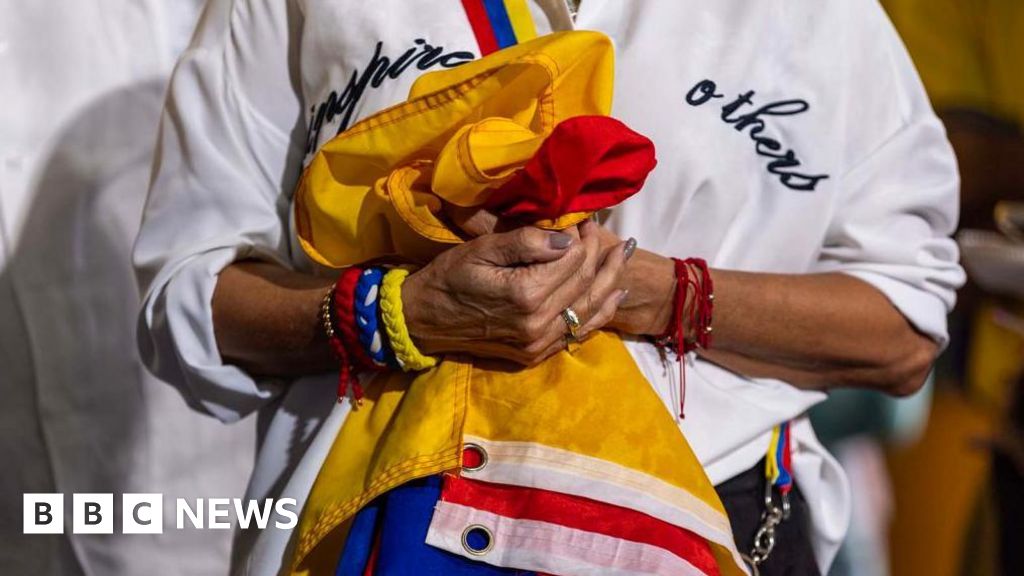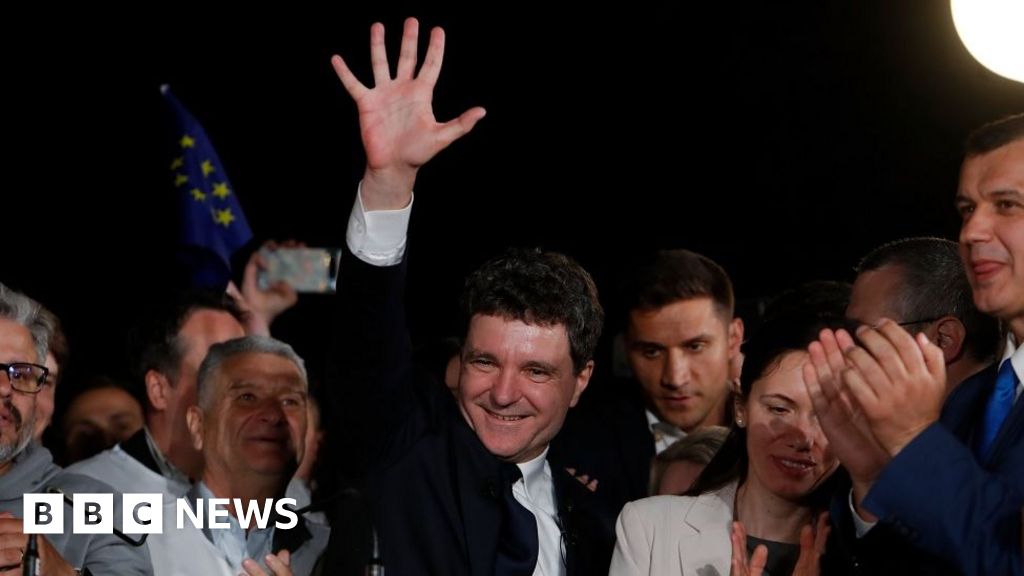ARTICLE AD BOX
By Anna Holligan
BBC News, Amsterdam
Image source, AFP via Getty Images
Image caption,People in Amsterdam enjoy their last drinks before all bars have to close their doors at 7pm
Twinkling fairy lights embellish the Linden trees around the Dutch parliament square.
Flames warm friends huddled beneath heaters glowing amber against the autumnal dusk.
Most people in the Netherlands reluctantly agree that sacrificing parts of their social lives can contribute to the greater good.
The Dutch government has announced a lockdown-lite designed to limit social contacts, in response to a sharp increase in infections. A record 16,324 new cases were recorded in one day this week and they remain stubbornly high.
"I do think it disproportionately affects young people," says Saskia Heyster, who is worried about her mental health.
"My studies can be stressful, last lockdown I got overwhelmed with the stress of managing everything. I really relish having a coffee and not having it feel illegal. I hope to have time to focus on other activities that don't involve going out for drinks. Honestly though, I've been having a meltdown."
Neill Bo Finlayson said people are now well conditioned to lockdowns
"It's pretty gutting, pretty frustrating," says Neill Bo Finlayson, who has just finished his pint.
"My experience is lockdown after lockdown. It's especially hard as we've just seen what life can be like, but public safety comes first and you've got to do what you've got to do. The rules aren't that draconian, and we're well conditioned to it now."
"Mental health should be treated the same as physical health and we young people are affected most by these measures - physically and mentally," says Natasja, who confides she's afraid of loneliness if the measures drag on beyond the planned three weeks.
The Netherlands has been criticised for taking a relatively relaxed approach in the past.
This liberal, conservative nation was one of the last in the world to make face masks mandatory, and the slowest in Europe to roll out its vaccination programme.
But with the intensive care units almost at capacity, operations cancelled, and struggling German hospitals warning they cannot accept patients from across the border, this initial short sharp shock is considered crucial to bring the record-breaking daily infection numbers under control.
The new restrictions have widely been referred to as a "partial lockdown", and yet during the day life will remain largely unchanged.
Bars, cafes and restaurants can keep serving (QR codes required for diners who want to stay rather than take-away) between 06:00-20:00. Sports matches can go ahead, but without spectators, and coronavirus entry passes and assigned seats are mandatory in food and drink venues.
Image source, Getty Images
Image caption,Anti-lockdown protests have taken place in The Hague
The mandatory closing time does not apply to artistic and cultural performances, for instance in cinemas, theatres and concert halls.
Which has led many to sardonically ponder whether the Dutch government considers Covid only transmissible after dark.
And the impact is already being felt.
Supermarkets rammed with masked shoppers dodging each other in the aisles, stocking up on crates of beer and trolleys full of carbs.
House parties are discouraged - maximum four visitors a day permitted, but everyone is aware this particular rule is virtually impossible to police.
Just like the last time the bars and restaurants closed, our neighbours in The Hague are already booming beats and welcoming friends to ensure they are not deprived.
There is a risk these measures will increase the spread of the virus at home, which according to government statistics is already responsible for the largest percentage of new infections.
Bas Swillens said the rules are unfairly penalising bars and cafes
Bas Swillens, manager at Cafe Leopold on the cobbled square outside parliament, notes the irony.
"We do everything to keep people safe, we check QR codes, people are sitting down... we are very careful. At home, no one is checking anything, yet again we are being blamed and penalised."
Entrepreneurs in at least four Dutch cities have vowed to ignore the early last orders rules.
The question is, what happens when - or if - councils decide to enforce them.
Clubs and restaurants across the border in Belgium and Germany are reporting "red hot" booking lines with Dutch nationals keen to ensure they have alternative places to party.
Considerable frustration and consternation exist among people who diligently wore their masks, kept their distances, and turned up for their jabs too.
The widely held expectation was that this obedience would be sufficient to ward off a fourth wave, or at least protect them from the consequences.
Image source, Getty Images
Image caption,Around 84% of Dutch citizens have received the vaccine
About 84% of Dutch adults have been fully vaccinated. Most patients in Dutch hospitals have not had their jab.
One mum dropping her son at ballet today did not possess the mandatory QR code Covid pass to enter. She explained, "Ik doe niet mee" ('I'm not participating'), popped her five-year-old inside and left the building.
The week before we'd shared crackers and chats while our children practiced their pliés.
The rules are carving divisions. Plans to create the 2G Covid passes - which will only give those who've been immunised or recently recovered from the virus a QR code - will further polarise.
A few hours before the restrictions kicked in, families in fancy dress came out to catch a glimpse of the traditional Sinterklaas arrival parade.
Floats and festivities weaved through the crowd-lined streets between the harbour and the centre of The Hague.
Overall, the Dutch are displaying a determination to live, within the limitations. But many are increasingly asking, when and how will this end?

 3 years ago
59
3 years ago
59








 English (US) ·
English (US) ·